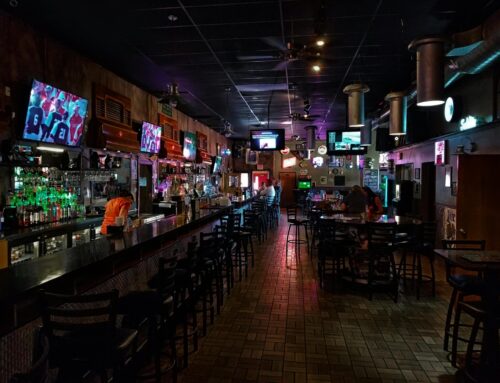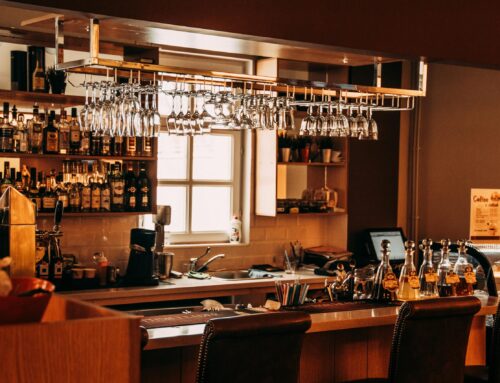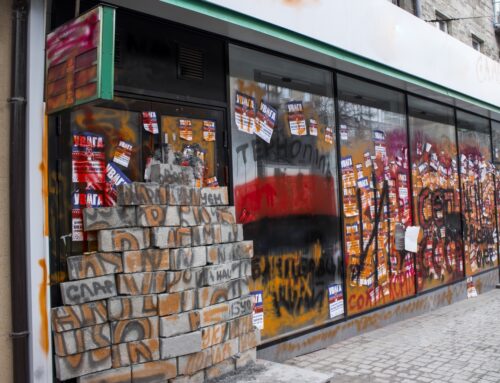All businesses that serve alcohol should carry liquor liability insurance. Without it, your business could be at risk. Liability insurance is designed to protect you and your assets from the threat of a lawsuit. Liquor liability insurance protects you from the actions of patrons you’ve served alcohol to. Keep reading to find out how Tabak Insurance can provide coverage for your assets.
Understand Dram Law
Any business that sells alcohol is called a dram shop. The name comes from old England, where gin would be sold by the spoonful or dram. There are dram laws in forty-four states and the District of Columbia. Dram law varies from state to state, but one thing that all dram laws have in common is that servers are required to stop serving a customer when they have reached a point of obvious intoxication. It is your legal duty to refuse service to already intoxicated customers.
Dram laws allow third parties to seek legal retribution for damages caused by a person that became intoxicated because of liquor you sold to them. Their suit may include payment for property damage or medical fees. It is common for the injured person to file a lawsuit against both the drunk person and the business that served them the alcohol.
Do I Need Liquor Liability Insurance?
Bars and restaurants need to carry liability insurance because they serve alcohol to customers. Liquor stores also fall under dram laws. But what about other businesses that sell alcohol?
The short answer is yes. Any business that sells alcohol is considered a dram shop and held to the same laws. This includes the corner bodega all the way to the largest grocery store chains. Independent servers and catering companies are not excluded, even if they don’t have a permanent location to serve from.
In states where dram laws are more strict, you may be required to prove you have insurance before you are granted a liquor license. Other states may not require you to carry liquor liability insurance at all. States like Texas do not have strong dram laws and don’t require this kind of insurance. Before operating without liability insurance, you should consider the potential costs if caught with an unexpected lawsuit.
Situations Covered by Insurance
Like all insurance policies, business owners need to consider the risk and damages they are willing to take on. You can take steps to limit your risk, but accidents can still happen even when precautions are taken. Here are some real-life situations where you may need liquor liability insurance.
One of your patrons drives home after drinking at your bar. They cause an accident that damages another person’s car, and that person also must seek medical attention. The person hurt by the drunk driver may sue the driver and your business for damages caused to their property and for their medical bills.
A disagreement over a game of pool causes a barfight at your establishment. Once the dust settles, several of your patrons have concussions and lacerations. An ambulance was called, and one patron was transported to the hospital. Another person at your business had the windshield of their car broken when the fight moved outside. Not only are you liable for the injuries caused by intoxicated people you served, but in some states, you may be responsible for injuries the drunken party caused to themselves.
You are bartending at a wedding as an independent server. You notice that Grandma has been hitting the Manhattans pretty hard, but the reception has been a blast, so you keep them coming. Grandma felt a bit wobbly getting into the cab at the night’s end but was still all grins and giggles. Climbing out of the cab at home, Grandma took a hard fall and broke her hip. You or your business could be held responsible for Grandma’s medical bills if you were found to be negligent in overserving her.
Protect Your Business
The consequences of overserving your customers can be far-reaching. Some are obvious, like drunken slips and falls or fights that erupt as a result of too much alcohol. Others may not be as clear, or they take a while to come to fruition.
Long-lasting side effects from a concussion or other injury caused by a barfight could have you responsible for medical fees for the duration of their recovery. You may not learn that a patron you served caused a car accident by driving home drunk until you read about it in the paper.
Investigators and lawyers will look into these incidents, and many will advise their clients to seek damages. Liquor liability insurance covers your legal fees, settlements, and medical costs incurred. You should know that liquor liability insurance does not cover damage to your property; these policies usually only cover damages caused to your patrons or staff.
How Much Is Liquor Liability Insurance?
The costs of insurance vary depending on your needs and risk assessment. Before an insurance company grants a policy, they will ask you some questions about your business. They may even be able to help you save on your insurance premiums by recommending training or strategies to reduce your risk.
If drinks make up less than a quarter of your sales volume, then your insurance costs will be lower. Your insurance costs go up as the volume of alcohol you sell increases.
The hours your business operates will also change your insurance rates. Restaurants that only serve alcohol during the day or for limited periods will have lower rates. Bars that are open until the early hours of the morning will have higher rates because of an increased risk of incidents.
Those that have lower risk factors can expect to pay about $900 per year for liquor liability insurance. For those with greater risk, the rates are not that much higher. Expect to pay about $1,400 per year for your insurance.
Just like all insurance, you’ll get the most accurate rates by chatting with an agent to learn how we can personalize your plan. At Tabak Insurance, we specialize in the food and liquor industry to bring the best service to our clients. We have saved our customers an average of 20% on their insurance costs in the last two years. Connect with one of our agents today to get a quote and learn more.




